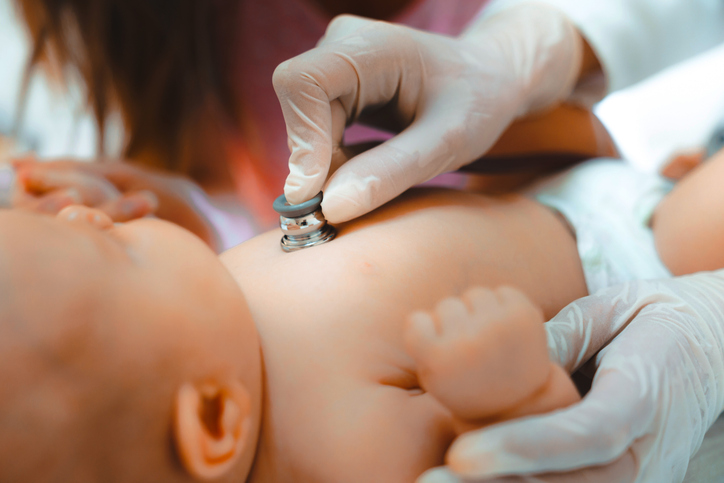2024-11-15
Childhood Pneumonia: Toward New Therapeutic Strategies?
Pneumonology
Childhood pneumonia remains a major public health concern. Despite
advancements in medical treatments and vaccination programs that have reduced
the incidence of severe cases, community-acquired pneumonia (CAP) continues to
be a leading cause of pediatric hospitalizations. In light of this, exploring
new therapeutic strategies is essential to enhance treatments and prevent
severe complications. This study investigates the efficacy of novel therapeutic
approaches for treating CAP.
A series of studies published between 2012 and 2024 involving children over 3 months old were analyzed. The following therapies were evaluated:
The findings suggest that an optimal treatment duration of 5 days, with clinical reevaluation after 72 hours, allows for tailored prescriptions and ensures a high symptom resolution rate. Additionally, simplified regimens significantly reduce side effects, such as fever and respiratory issues, leading to improved treatment adherence.
This study provides a robust foundation for refining pediatric pneumonia treatment through personalized approaches based on patients’ age and vaccination status. It also confirms that shorter treatment courses are as effective as longer ones, reducing the risk of antibiotic resistance while improving adherence. These findings pave the way for more targeted, less burdensome therapies for children, simplifying the management of this common respiratory infection.
Amoxicillin as a First-Line Treatment for Childhood Pneumonia?
A series of studies published between 2012 and 2024 involving children over 3 months old were analyzed. The following therapies were evaluated:
- Amoxicillin, administered in 2 to 3 daily doses, as a first-line treatment.
- Amoxicillin-clavulanate or cephalosporins for children who are unvaccinated or partially vaccinated against H. influenzae and S. pneumoniae.
The findings suggest that an optimal treatment duration of 5 days, with clinical reevaluation after 72 hours, allows for tailored prescriptions and ensures a high symptom resolution rate. Additionally, simplified regimens significantly reduce side effects, such as fever and respiratory issues, leading to improved treatment adherence.
Promising Advances in Pediatric Care
This study provides a robust foundation for refining pediatric pneumonia treatment through personalized approaches based on patients’ age and vaccination status. It also confirms that shorter treatment courses are as effective as longer ones, reducing the risk of antibiotic resistance while improving adherence. These findings pave the way for more targeted, less burdensome therapies for children, simplifying the management of this common respiratory infection.

Last press reviews
Dark chocolate: guilty pleasure or a renal ally?

By Ana Espino | Published on December 16, 2025 | 3 min read<br>...
A post-exercise infrared sauna session: a booster for neuromuscular recovery or just comfort?

By Lila Rouland | Published on December 15, 2025 | 3 min read<br>
Cinnamon: more than just a spice?

By Ana Espino | Published on December 12, 2025 | 3 min read<br>...